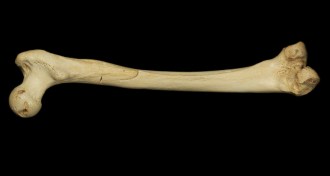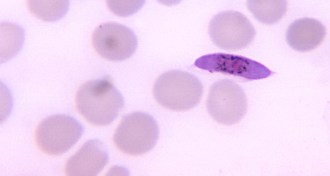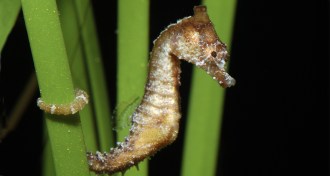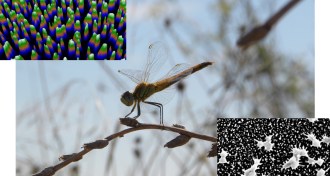News
-
 Life
LifeAutism may have link to chemicals made by gut microbes
Beneficial bacteria improved abnormal behaviors in mice with altered intestines.
-
 Anthropology
AnthropologyAncient hominid bone serves up DNA stunner
Spanish hominid fossil from 400,000 years ago reveals genetic ties to Asia’s mysterious Denisovans.
By Bruce Bower -
 Astronomy
AstronomyISON appears to have broken up after brush with sun
Comet ISON has disintegrated in the sun’s intense heat and gravity, according to a growing consensus among astronomers.
-
 Genetics
GeneticsEvolution of venom, binge eating seen in snake DNA
Python and cobra genes evolved quickly to enable hunting strategies.
-
 Planetary Science
Planetary ScienceMoon wears dusty cloak
Old data from Apollo missions stir up debate about speed of lunar dust accumulation.
By Meghan Rosen -
 Animals
AnimalsInsect form of sexual frustration takes toll
Smelling female fruit flies but not mating with them can actually shorten males’ lives.
By Susan Milius -
 Life
LifeTo cook up life, just add citrate
The theory that RNA spawned the first organisms gets a boost from a common compound.
By Sam Lemonick -
 Planetary Science
Planetary ScienceJupiter’s Great Red Spot explained
A computer simulation is the first to explain how Jupiter’s Great Red Spot has survived for the nearly 200 years humans have observed it.
-
 Life
LifeCompounds defeat malaria at every step
Experimental drugs are first to kill all stages of the parasite’s infection cycle.
By Beth Mole -
 Health & Medicine
Health & MedicineThalidomide treats Crohn’s disease
Study of children with the inflammatory bowel disorder raises possibility of new use for tainted drug.
By Nathan Seppa -
 Animals
AnimalsOdd head of seahorse cloaks its sneak attacks
Head shape creates hydrodynamic fake-out for stealth hunting.
By Susan Milius -
 Materials Science
Materials ScienceMaterial inspired by dragonfly wings bursts bacteria
Silicon studded with nanostructures could act as antimicrobial coating on medical devices.
By Beth Mole